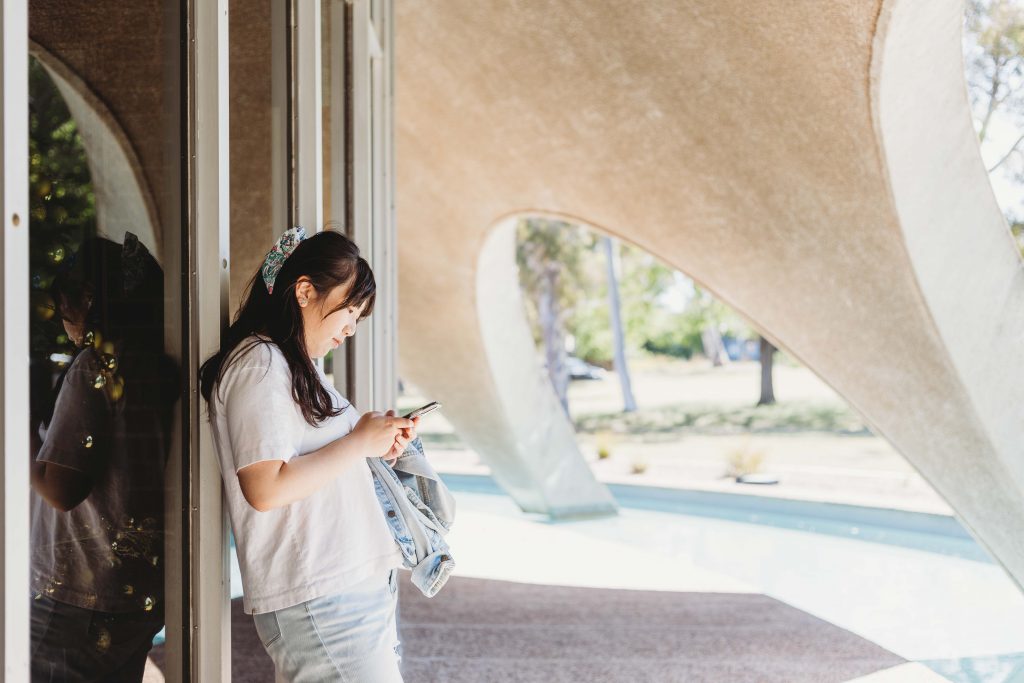
Student Guide
Created by local experts, find out more about the city and how to enjoy your time studying and living in Canberra.
Read more
We acknowledge the Traditional Custodians of the ACT, the Ngunnawal people and recognise any other people or families with connection to the lands of the ACT and region.
Welcome, new Canberrans! Known as The Bush Capital, Canberrans enjoy a great lifestyle where relaxed suburban living meets bustling town centres.
No matter what suburb you call home, there are a few things to keep in mind when moving in.
Firstly, if you’ve arrived from overseas, to pay your bills (and to receive your wage or other payments) you’ll need an Australian bank account.
If you’re renting privately, it’s common for landlords to include costs – such as rates and water usage bills – in your rent, however you will still need to pay for electricity or gas bills separately. The real estate agent should walk you through the process of setting up your electricity and gas accounts.
You may want to consider insurance for your belongings – the landlord’s insurance will only cover the building.
If you don’t want to connect to the internet using your mobile device (which can get expensive) you might want to set up wireless or broadband internet. Providers in Canberra include iiNet, TPG, The Signal Co, Telstra, Aussie Broadband, Optus and Belong.
In Australia you can watch a limited number of television channels for free, either by connecting a TV to the antenna (no internet required!) or by streaming through your device. You can also stream paid services such as Netflix, Disney, Stan, Binge, or Prime for a small monthly fee.
If you’d like to have a fixed home phone, or landline, this would also be an additional cost. Many students rely on their mobile device for communications.
If you are living in student accommodation or a college, many of the above costs and services will be built into your weekly rent. Make sure you ask what is or isn’t included.
Lastly, notify your bank, employer, education provider of your new address. If you are an international student, your visa requires you to update your education provider within seven days of arriving in Australia or moving to a new address.
Once you’ve moved into your new home, there are a few things you’ll need to do.
First, check your home is in working order. Make sure things like hot water, taps and switches work. If there are any faults or issues, notify your agent or landlord. Also think about home and contents insurance. If you’re living in your own apartment or house, or have joined an existing share house, you might want to purchase home and contents insurance to protect your belongings from theft or damage. Learn about different types of insurance from the Insurance Council of Australia.
Next, get to know your local area. Find out where your nearest medical centre, shops, public transport hubs, fitness facilities and more are located. Learn about waste disposal in your area, including recycling and composting options. Check out the ACT Government’s website for more info on waste.
Finally, make sure to tell your friends and family where you’re living. They probably want to know that you’re in a safe place and they may want to send mail from time to time.
Unlike in Europe and Asia, it’s uncommon for private rental properties to be furnished. You can save money by buying pre-loved furniture or appliances – check out online marketplaces like Gumtree or Facebook Marketplace or shop in-person at The Green Shed, Salvos or Vinnies stores across Canberra. You can sometimes find other students selling stuff once they graduate. Depending on your suburb there might also be a Buy Nothing facebook page you can join. It’s where neighbours and residents of a certain area list items they no longer use or need usually for free.
To shop for brand new furniture and appliances, head to the suburb of Fyshwick where you’ll find Canberra Outlet Centre’s Home Hub and other big box stores like Harvey Norman and Bing Lee. IKEA and Costco in Majura Park also offer a good range.

Canberra has a diverse range of speciality stores, from grocers specialising in Asian ingredients to Mediterranean-style bakeries and delis. Canberra’s own mini-Chinatown on Woolley Street in Dickson is a great location to shop for a variety of Asian specialty stores and supermarkets. Amici Deli in the city and Tutto Deli in Mawson have a range of imported European produce. For South African flavours check out Spaza Store in Gungahlin and students from the US can find American candy at The Lolly Shop in Gold Creek.
If this is your first time living out of home (or away from catered university accommodation) you’ll need to know where to shop for food and essentials. Canberra is divided into suburban ‘hubs’ with a mixture of small and large local shops. The larger shops are where you’ll find the supermarkets such as Woolworths, Coles, Aldi or Supabarn – offering a wider variety and cheaper options than their smaller counterparts.
If you’d like to shop like a local, head to one of Canberra’s Farmers Markets where you can buy fresh produce, meat, dairy, eggs, pastries, bread, flowers, plants and more direct from the grower or maker. Held on weekend mornings, the northside market is the Capital Region Farmers Market at Exhibition Park each Saturday morning. On Sundays, head to the Southside Farmers Market at Canberra College in Phillip.